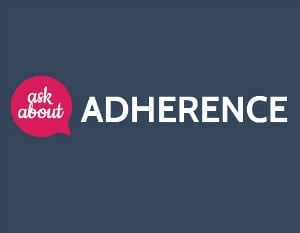
Ask About Adherence is a blog series featuring Q&A’s with experts and new medication adherence resources. In this post, we are pleased to share a blog post from Xue Han.
Conversations and healthy debate about issues facing our industry and the health care system are critical to addressing some of today’s challenges and opportunities. The Catalyst welcomes guest contributors, including patients, stakeholders, innovators and others, to share their perspectives and points of view. Views represented here may not be those of PhRMA, though they are no less key to a healthy dialogue on issues in health care today.
Nearly half of American adults have at least one chronic disease and may benefit from initiating prescription medication treatment. However, new research documents that a large fraction of people at risk do not initiate prescribed drug regimens or they delay treatment, often until after experiencing an adverse health event, such as a heart attack or stroke. Such medication under-treatment degrades chronic disease management and adversely impacts both patients’ health outcomes and health care costs.
The total direct and indirect cost of cardiovascular disease (CVD) in the United States for 2010 was estimated to be $315.4 billion. Hyperlipidemia and hypertension are the two leading modifiable conditions contributing to an elevated risk of CVD events. Effective treatment of hyperlipidemia and hypertension can prevent CVD or slow disease progression. However, treatment rates for hyperlipidemia and hypertension remain low, especially now that updated treatment guidelines recommend expanding treatment to a larger group of patients.
A recent study published in the Journal of Managed Care and Specialty Pharmacy found that delaying treatment or failing to initiate treatment was very common among patients with hyperlipidemia in the period preceding the 2013 guidelines.
- Non-initiation rates of cholesterol-lowering medications for patients meeting guideline criteria for primary and secondary prevention of cardiovascular events were 60 percent and 70 percent, respectively.
- Patients who were eligible for primary prevention treatment under new guidelines and initiated treatment showed a reduced risk of CVD events by 14 percent to 37 percent. Analyzed events included AMI, stroke and coronary angioplasty, with rates compared to untreated patients.
- Patients receiving primary prevention also had lower total health care costs during the year following their identification as being at risk, compared to those patients not initiating cholesterol-lowering treatment.
- The estimated benefits of treatment for patients qualifying for secondary prevention included a 33 percent reduction in the risk of requiring cardiovascular hospitalization.
Similar findings were documented in patients with hypertension, or a diagnosis of elevated blood pressure.
- Primary prevention with anti-hypertensive medications was associated with a 60 percent risk reduction in AMI and stroke
- Primary prevention with anti-hypertensive medications was associated with a 10 percent mortality risk reduction.
- Risk reductions associated with initiating preventive drug therapy could save up to $1000 dollars per patient, if prescribed before the patient experiences a cardiovascular event.
The study findings are clear: Delaying or forgoing the initiation of appropriate medication therapy for primary and secondary prevention is common, and likely contributes to both increased cardiovascular event risks and higher health care expenses.
Xue Han is a Ph.D. of Health Economics at University of Southern California. She obtained her Masters in Pharmaceutical Economics and Policy from the University of Southern California. She also received a fellowship from PhRMA in her doctoral study. Xue’s current research focuses on documenting the impact of under-treatment for chronic disorders, particularly including hyperlipidemia, hypertension and cardiovascular disease.




